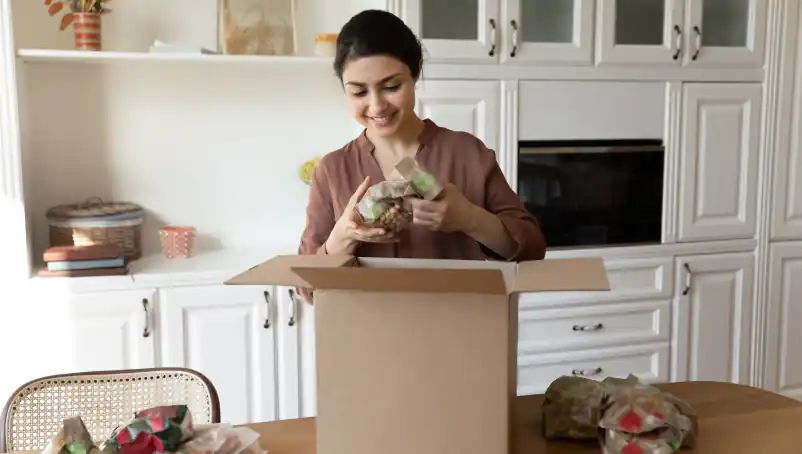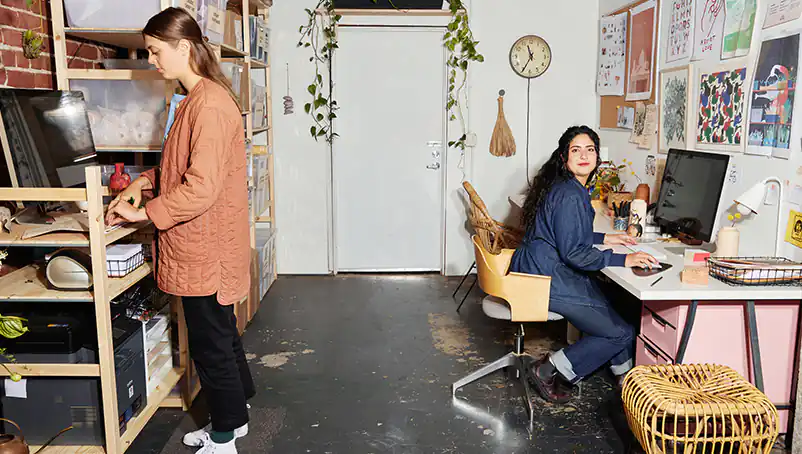Do I need a license to sell food online?
Food laws vary depending on what you’re selling and where you’re selling. Regulations and licensing for selling home-baked cookies in a small town are going to be different from someone starting a catering business in a major city.
If you run a food business from home, you’ll need to follow the cottage food laws of your state. In general, they’re designed to ensure that the food you’re making in your home kitchen meets local health standards. Most require annual inspections of your home kitchen, zoning clearance or permit approval from your local department of agriculture or health, and a valid state business license.
You could instead choose to work out of a commercial kitchen. It’s more expensive than working from home, but all the licensing, health checks and cleaning are handled by the owner of the kitchen.
How to start an online food business
To start selling, you’ll need to register for a Doing Business As (DBA) certificate. It’s the legal way of selling/making money under a name that isn’t your own.
A DBA doesn’t offer your business or yourself any protection. It just allows you to legally make money under a different name. Your personal assets could be at stake should something happen to your business.
For protection of personal assets, many small business owners choose to start a limited liability company (LLC). With this legal structure in place the members of the company (even if it’s just one person) aren’t personally responsible for company debts. While generally more expensive than a DBA, this barrier between your business and your personal finances is worth considering.
Plus, once you register your business as an LLC, as long as you use the same name to sell your goods, you won’t need an additional DBA.
Do I need insurance to sell food online?
Yes. Should something happen, even if it’s not your fault, food and beverage business insurance or e-commerce insurance can help protect you and your business.
For example, if a customer sues you because they had an allergic reaction to your food that necessitated a trip to the ER, you may have to defend yourself in court, which costs money. Luckily, general liability insurance, the cornerstone of most small business policies, may help to cover costs.
If you have employees, most states require you to carry workers’ compensation insurance. And if you do deliveries, you’ll probably need commercial auto insurance for your business, as personal auto insurance may not provide coverage if you get in a job-related accident.
NEXT offers insurance packages tailor-made to meet the needs of your online food business. In just 11 minutes, you can have a custom quote for everything your business needs.
What about taxes?
Your state and local governments are going to want their piece of your earnings. You may receive your tax permit as part of getting licensed. But if not, you’ll need to find out what’s required from your local tax office.
Some states only collect taxes when you sell food online outside of the state. Others levy taxes for both in-state and out-of-state sales.
There is often a special permit for online food vendors, which is different from the tax permits of traditional food vendors. If you need help finding the correct permit, the US Small Business Administration offers resources to help entrepreneurs succeed.
How NEXT helps small businesses sell food online
Get the business insurance you need to sell food online from NEXT. Our customized food and beverage insurance packages provide just the right amount of coverage to help your business thrive.
Choose from general liability insurance, workers’ compensation insurance or commercial property insurance. Mix and match policies for your unique business needs.
Review your policy options, get a quote and purchase coverage — all in less than 10 minutes. Your certificate of insurance is available immediately after you pay your premium.
If you have questions, our licensed, U.S.-based insurance professionals are ready to help.
Get started with a free quote from NEXT.






